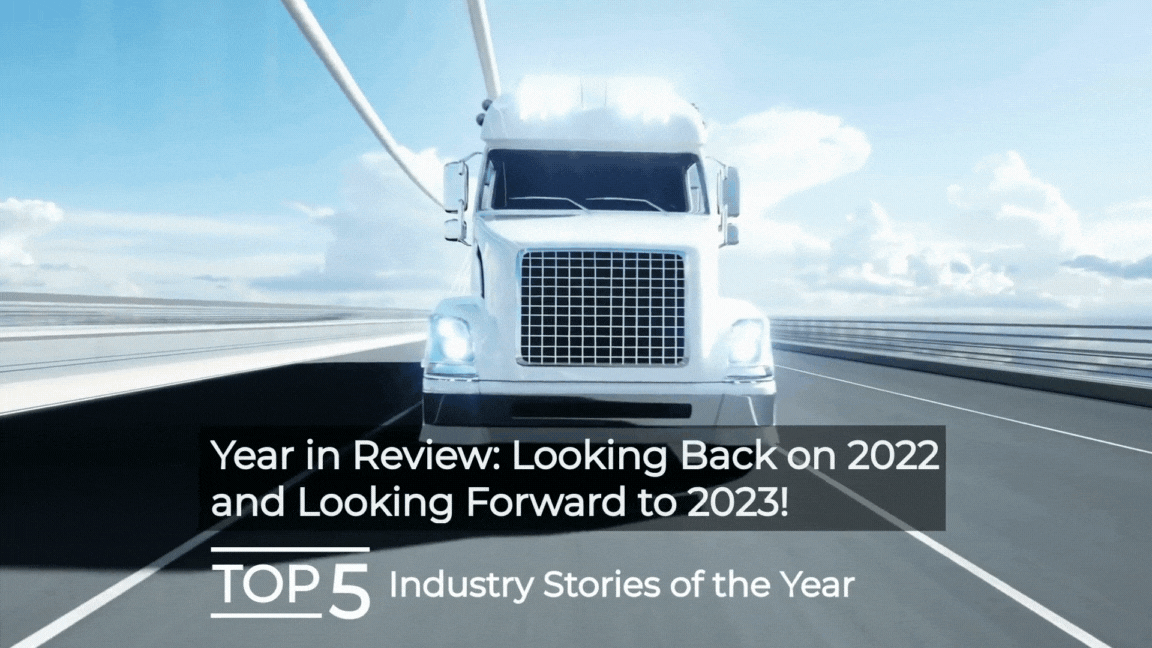Air Quality Awareness Week is a national event that takes place every year during the first week of May. This weeklong event is dedicated to raising awareness about air quality and promoting ways to improve it.
History of Air Quality Awareness Week: Air Quality Awareness Week was first observed in 1999 by the Environmental Protection Agency (EPA) and its partners. The goal was to encourage people to learn about the impact of air pollution on their health and the environment. Since then, the event has grown to include a wide range of activities and initiatives to improve air quality.
Read More
Topics:
Trucking Environmental Sustainability,
Fleet Safety,
Truck Fleet Analytics,
Fleet Management,
Fleet Optimization,
GHG,
Fuel Economy
Earth Day (April 22) is an annual global event dedicated to promoting environmental protection and raising awareness about the importance of sustainability.
As the world is facing the looming threat of climate change, it is vital that individuals, communities, and industries come together to take action for a better future.
The transportation industry is paying attention and taking significant steps toward reducing its environmental impact, and corporate transportation fleets are prioritizing their ESG (Environmental, Social, and Governance) goals.
Read More
Topics:
Trucking Environmental Sustainability,
Fleet Safety,
Truck Fleet Analytics,
Fleet Management,
Fleet Optimization,
GHG,
Fuel Economy
JOIN US AT THESE UPCOMING EVENTS TO WITNESS THE UNVEILING OF OUR NEW TECHNOLOGY BREAKTHROUGH THAT WILL HELP DEFINE THE FUTURE OF TRANSPORTATION!
We are excited to announce that we will be attending and exhibiting at several upcoming transportation industry events and conferences in the next few months! Fleet Advantage executives will discuss the state of the industry and providing various complimentary fleet analyses.
This includes demonstrations of our new, groundbreaking analytic tool, which helps to make informed decisions about cost-effective and sustainable transportation options for your fleet. This tool has been developed in response to the needs of our clients and many fleets in the industry and will help fleets evaluate their total cost of ownership and help build a bridge to alternative energies.
Read More
Topics:
Trucking Environmental Sustainability,
Fleet Safety,
Fleet Management,
Fleet Optimization,
GHG,
Truck Fleet Operations
How is your company and fleet affecting the environment and how can you help!
It is estimated that over a billion people participate in
Earth Day
every year, making it the largest secular observance in the world. The first Earth Day was celebrated on April 22, 1970. It sparked an environmental movement that led to the creation of the National Oceanic and Atmospheric Administration (NOAA) and the U.S. Environmental Protection Agency (EPA) later that year. Earth Day was also influential in passing environmental legislation like the Clean Air Act, Clean Water Act, Endangered Species Act, National Environmental Education Act, and more.
Read More
Topics:
Trucking Environmental Sustainability,
Fleet Safety,
Truck Fleet Analytics,
Fleet Management,
Fleet Optimization,
GHG,
Fuel Economy
Today, many companies are involved in Corporate Social Responsibility efforts to take responsibility for the social and environmental impacts of their daily operations. For example, Dell initiated a 2020 Legacy of Good Plan that addresses community challenges by using their technical expertise where it can have an impact for people and the planet. Specifically, they are partnering with Camera Education to help train teachers in Ethiopia on how to provide computer knowledge to their classroom.
This example of a global initiative is great, but seldom in life can a company provide a product or service that contributes to all of humanity. I feel fortunate to be associated with a company that does exactly that, and on this Earth Day I would like to express my appreciation for the forward-thinkers who recognize that the changes they are making not only save their companies money, but to also acknowledge them for doing the right thing for society and the planet.
Read More
Topics:
Trucking Environmental Sustainability
There have been literally hundreds of articles and commentaries written on the environmental effects on the transportation industry of the latest GHG Regulations that were finalized on August 16, 2016. While we all understand that the regulations will reduce millions of metric tons of CO2 into the atmosphere, few understand the long-term impacts on their operating budgets and their bottom line.
With the high cost of the emissions regulations of the 2000’s still reeling in the minds of many transportation executives, these new regulations may trigger ‘Particular Matter’ anxiety. However, this time is different, it delivers enormous cost saving opportunity that will last through the next decade—but only to those willing to change the status quo.
Read More
Topics:
Trucking Environmental Sustainability
GHG Phase 2 Mandate - Affects on Heavy Duty Truck Fleets
A competitive advantage goes to the business visionaries that act faster than the competition to changes in the market providing a greater value at a lower cost. The initial Greenhouse Gas mandates have already saved Class 8 transportation fleets millions of dollars in operating costs by reducing fuel consumption. On August 16, 2016 the federal government passed the proposed regulation, GHG Phase 2, to further tighten emissions and improve fuel economy for heavy duty trucks by up to 25% from 2017 through 2027 model years.
The GHG Phase 2 final rule, issued by the US EPA and the NHTSA also contains the first-ever federal efficiency standards for new trailers.
Read More
Topics:
Trucking Environmental Sustainability
The terms “government regulation” and “increased corporate profit” at first glance seem to be a conflicting association. In 2003 federal mandates went into effect to reduce heavy duty truck diesel exhaust emissions, Particulate Matter 2.5 and NOx—emissions harmful to human health, and continued through 2010. Manufacturers spent hundreds of millions of dollars in research to develop technologies to comply with the mandates and passed the cost directly to the consumer. Although the technologies reduced emissions by as much as 96%, the transportation sector suffered a decade of often failed technologies that caused severe budget and maintenance headaches within their operations.
Read More
Topics:
Trucking Environmental Sustainability
As we planned to launch our blog on Earth Day 2015, we struggled for just the right topic until coming across a report on the EPA’s Clean Power Plan, a budget and proposed reforms that address climate change efforts in the coal industry. This prompted a question to my colleague, “Do you believe in climate change?” “Absolutely!” he responded. He continued, “Has there always been climate change? Absolutely! Will there always be climate change? Absolutely!
Read More
Topics:
Trucking Environmental Sustainability


.jpg)

.gif)










